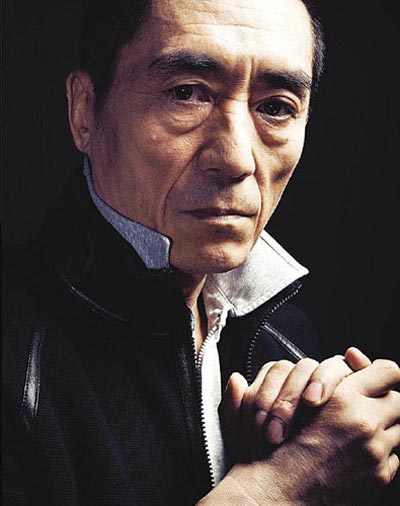 |
|
Zhang Yimou, director. Photo provided toChina Daily
|
Red Sorghum was adapted from Mo's novel, set in rural China during the War of Resistance against Japanese Aggression (1937-45).
It was a romantic saga about Chinese farmers. Many filmmakers wanted to adapt the novel. But Zhang, then an ambitious cinematographer preparing his directorial debut, was the one who stood out.
"The passion at that time was so pure, like first love," recalls Zhang. "The making of Red Sorghum is a lifetime experience that cannot be repeated."
The two cooperated again in Zhang's 2002 drama Happy Times. After that, Zhang ushered in an era of so-called Chinese blockbusters by making Hero, House of Flying Daggers and Curse of the Golden Flowers.
These films were the talk of the country, with extravagant settings, costumes and casts, which included almost all Asian superstars, such as Jet Li, Maggie Cheung and Tony Leung.
Zhang's then producer Zhang Weiping, an established businessman adept at marketing and hype, successfully drew millions of viewers into theaters. Most of these films, however, were poorly received by critics, despite the box-office triumph.
Coming Home, therefore, has been seen as a return by the 64-year-old director to his best-known genre, realistic drama.
"The name, like a metaphor, embodies my effort to get back to where I started the journey," Zhang says.
Mo agrees.
"Zhang is, indeed, a person who has special talent. He can make films like both Red Sorghum and Hero," Mo says. "But I believe both writers and filmmakers should handle only subjects they are able to."
we recommend:
